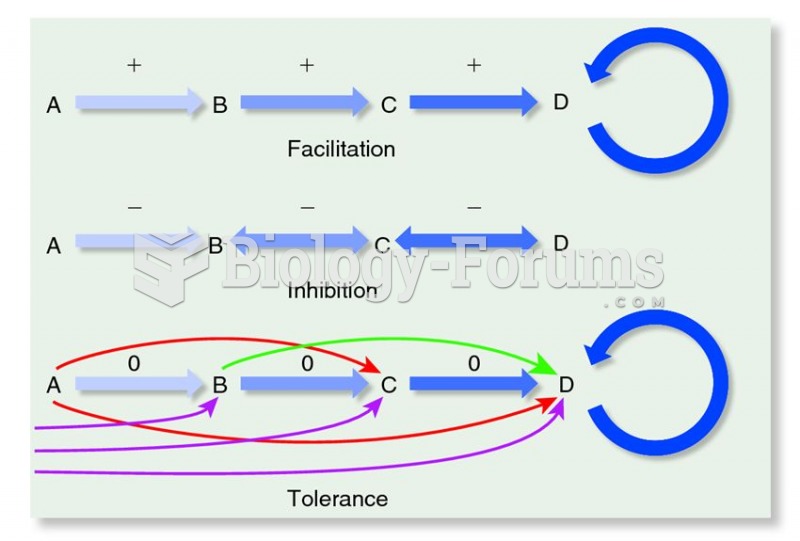This topic contains a solution. Click here to go to the answer
|
|
|
Did you know?
Prostaglandins were first isolated from human semen in Sweden in the 1930s. They were so named because the researcher thought that they came from the prostate gland. In fact, prostaglandins exist and are synthesized in almost every cell of the body.
Did you know?
In women, pharmacodynamic differences include increased sensitivity to (and increased effectiveness of) beta-blockers, opioids, selective serotonin reuptake inhibitors, and typical antipsychotics.
Did you know?
The familiar sounds of your heart are made by the heart's valves as they open and close.
Did you know?
People about to have surgery must tell their health care providers about all supplements they take.
Did you know?
Nearly 31 million adults in America have a total cholesterol level that is more than 240 mg per dL.







